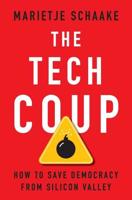Publisher's Synopsis
The first detailed history of Code for America that examines how democratically designed government systems can collectively improve technology's impact on society. For decades, tens of thousands of volunteers and employees of Code for America have taken a different path to institutional change: through designing and implementing infrastructure. In Politics Recoded, Aure Schrock employs a robust, organizational ethnography to analyze how Code for America's infrastructural organizing changed how politics get exercised and shows how we citizens can work directly with the government on projects to improve our collective livelihoods. Drawing from theories of organizing, social infrastructure, racialized organizations, technical cultures, and intersectionality, Schrock argues that our "post-techlash society" must no longer presume that corporate platforms or social networks can level social inequities. An under-recognized yet influential organization, Code for America emerged from a tech culture background that prioritized networks and publicity over the long, slow work of institutional change. But its evolution demonstrates how to push beyond the fundamental flaws of tech-forward organizing. This, the first history of Code for America, shows how promoting agentic citizenship and brokering in empathy let the organization influence policy at all levels of government-and demonstrates why we need to bolster institutions to ensure that everyone is justly represented and receiving the benefits. Appealing to those in political science, communication, and information studies, Recoding Politics will empower practitioners and activists to revolutionize technological design and participate in alternative forms of civic engagement. Series Overview: The Information Society Series publishes original scholarship addressing the social, legal, and political implications of the Internet and new information and communication technologies. The series features empirical and scholarly research from the growing global ranks of interdisciplinary scholars in fields of inquiry such as information studies; communication and media studies; science, technology, and society; and law, technology, and culture. Publications address contemporary issues and controversies in global information and communication technologies and uncovers the values and interests at stake in the design, implementation, and usage of these technologies. Series publications are grounded in scholarly and empirical inquiry and have a strong normative overlay, seeking to advance new ideas and solutions to global problems in technology and society. Series authors address challenging topics at the intersection of information technology and culture such as privacy, freedom of expression, reputation, knowledge production, accessibility, Internet governance, equality, and identity.








